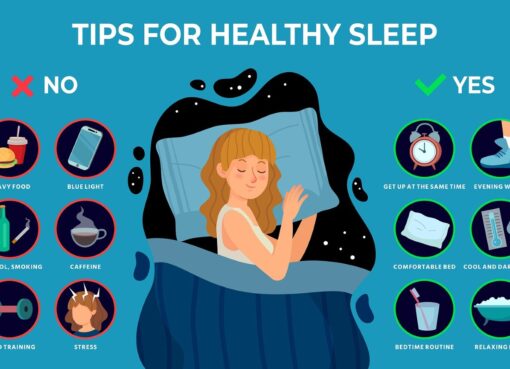Homeopathy

Homeopathy: A Gentle and Holistic Approach to Healing
Homeopathy is a system of alternative medicine that uses highly diluted natural substances to stimulate the body’s healing abilities. Rooted in the principle of “like cures like,” homeopathy believes that substances that cause symptoms in a healthy person can, in small doses, treat similar symptoms in an ill person. Developed in the late 18th century by Samuel Hahnemann, homeopathy has grown into a widely used form of complementary therapy for a wide range of conditions, from acute ailments to chronic diseases. While it is often considered controversial within conventional medicine, homeopathy continues to have a dedicated following, with many individuals seeking it out for its gentle, individualized, and holistic approach.
The Principles of Homeopathy
Homeopathy operates on several key principles that distinguish it from conventional medicine. These principles guide homeopaths in their treatment of patients, and understanding these concepts is essential to grasp how homeopathy works:
1. Like Cures Like (Similia Similibus Curantur)
The fundamental principle behind homeopathy is the idea that a substance that causes certain symptoms in a healthy person can be used to treat those same symptoms in a sick person. This concept, known as the Law of Similars, forms the foundation of homeopathic treatment. For example, if a substance like onion causes watery eyes and a runny nose in a healthy individual, it might be used in homeopathic form to treat similar symptoms in a person suffering from hay fever or the common cold.
2. The Law of Minimum Dose
Homeopathic remedies are prepared by serial dilution and vigorous shaking (called succussion), which is believed to enhance their healing properties. The process of dilution is taken to an extreme, where a single drop of the original substance may be diluted in a series of steps, often to the point where no molecules of the original substance remain. According to homeopathic philosophy, the more diluted the remedy, the more potent its healing effect. This approach is based on the Law of Minimum Dose, which suggests that less is more when it comes to stimulating the body’s self-healing processes.
3. Individualized Treatment
Homeopathy emphasizes the individuality of each patient. Instead of focusing solely on the disease or symptoms, a homeopath takes into account a person’s physical, mental, and emotional state. This holistic approach seeks to treat the root cause of illness rather than merely alleviating symptoms. Homeopaths consider a person’s lifestyle, personality, preferences, and even their reactions to different situations when selecting the appropriate remedy. This individualized treatment plan aims to restore balance and stimulate the body’s innate ability to heal.
4. Holistic Healing
Homeopathy views health as a state of balance between the body, mind, and spirit. When this balance is disrupted, illness arises. Homeopathic remedies are designed to address the whole person—both the physical and emotional aspects of their condition. For example, two people with similar physical symptoms (such as headaches) may receive different homeopathic remedies based on their unique emotional states, reactions, and other individualized factors.
How Homeopathy Works
While the mechanisms of action behind homeopathy are still a subject of debate in the scientific community, proponents of homeopathy believe that these remedies stimulate the body’s vital force or life energy to restore balance and promote healing. According to homeopathic theory, the remedies act on the body’s energy field, influencing the body’s self-regulatory mechanisms and supporting the body’s natural defenses.
One of the distinguishing features of homeopathy is its focus on treating the underlying cause of illness rather than just the symptoms. For instance, if a person is suffering from chronic migraines, a homeopath would not only address the pain but would also look for emotional, psychological, or lifestyle factors that may be contributing to the condition. This individualized treatment aims to remove the root cause of the problem and restore overall health.
Common Uses of Homeopathy
Homeopathy is used to treat a wide range of conditions, both acute and chronic. Some common uses include:
1. Acute Ailments
Homeopathy is often used to treat short-term conditions such as colds, flu, allergies, and digestive issues. Remedies like Oscillococcinum for flu-like symptoms or Aconite for sudden onset of fever or chills are popular in homeopathic circles. These remedies are believed to support the body’s immune system and speed up the recovery process.
2. Chronic Conditions
Homeopathy is also widely used to manage chronic conditions, such as asthma, eczema, arthritis, migraines, and irritable bowel syndrome (IBS). Because homeopathic remedies are tailored to the individual, they can help address the underlying factors contributing to long-term health problems. Many people use homeopathy alongside conventional treatments to manage chronic conditions and improve overall well-being.
3. Mental and Emotional Health
Homeopathic remedies are commonly used to support mental and emotional health. For conditions such as anxiety, depression, stress, and sleep disorders, homeopaths may select remedies like Ignatia (for grief and emotional stress) or Natrum muriaticum (for emotional withdrawal). The holistic approach of homeopathy aims to restore emotional balance and improve mental health.
4. Post-Surgery and Injury Recovery
Homeopathy is also used to aid in post-surgery or injury recovery. Remedies such as Arnica are commonly used to reduce swelling, bruising, and pain associated with injuries or surgery. Many people find homeopathic remedies helpful in speeding up the healing process and reducing the need for pharmaceutical pain relievers.
The Preparation of Homeopathic Remedies
Homeopathic remedies are made from a variety of natural substances, including plants, minerals, and animal products. The process of creating a remedy involves a series of steps, including:
- Selection of the Substance: The remedy starts with a natural substance that can be derived from plants, animals, or minerals.
- Dilution and Succussion: The substance is diluted in water or alcohol and then shaken vigorously to activate its healing properties. This process is repeated multiple times.
- Potentization: The remedy is increasingly diluted to enhance its potency, with higher-potency remedies used for chronic conditions and lower-potency remedies for acute ailments.
Homeopathic remedies come in various forms, including pellets, tablets, liquids, or powders. These remedies are taken by mouth, applied topically, or used in other ways depending on the condition being treated.
Safety and Effectiveness of Homeopathy
Homeopathy is generally considered safe, with few side effects, due to the highly diluted nature of its remedies. However, it is important for patients to seek treatment from a qualified homeopath to ensure they receive the correct remedy for their unique symptoms. Homeopathy should not be used as a substitute for conventional medical care in serious or life-threatening conditions.
While some studies suggest that homeopathic remedies may be effective for certain conditions, the scientific community remains divided on the overall efficacy of homeopathy. Many studies have been criticized for methodological flaws, and there is ongoing debate about the mechanisms by which homeopathy might work.
Conclusion
Homeopathy offers a unique and individualized approach to healing that focuses on stimulating the body’s own healing abilities. By considering the whole person—body, mind, and emotions—homeopathy seeks to restore balance and address the root causes of illness. While the scientific evidence remains controversial, homeopathy continues to be a popular and respected form of alternative medicine for individuals seeking natural and gentle remedies for a wide range of health concerns. Whether for acute ailments, chronic conditions, or emotional well-being, homeopathy offers a holistic option for those looking for a more personalized approach to healthcare.




Leave a Comment